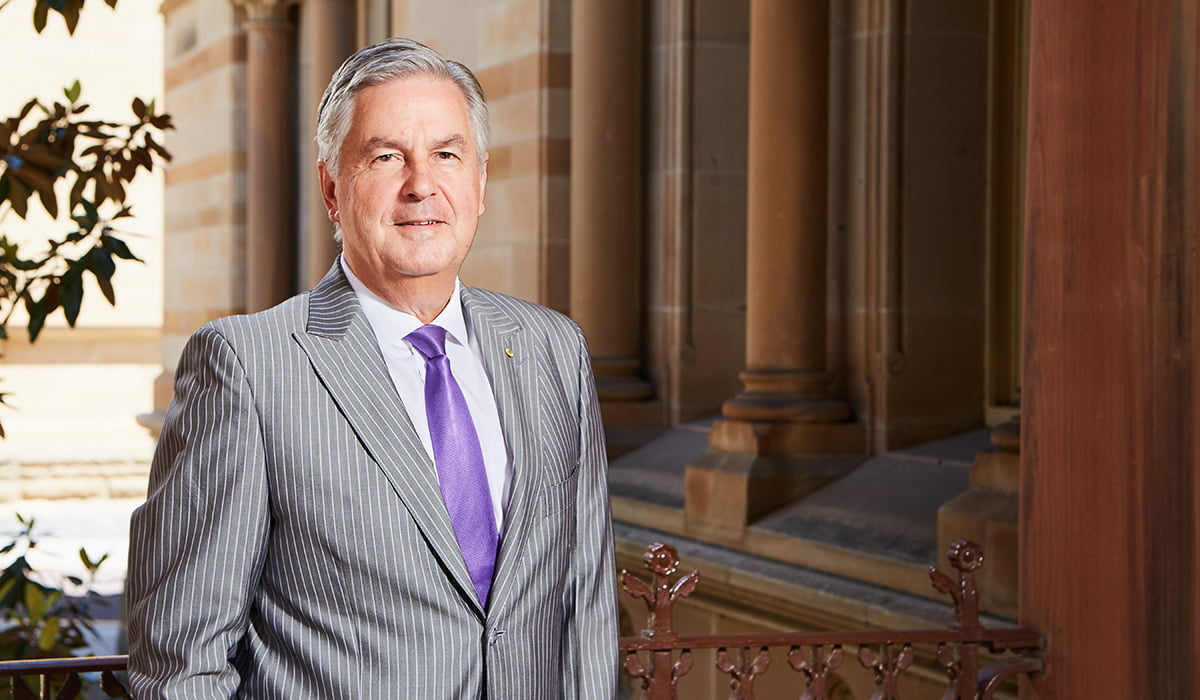At the 45th Essington Lewis Memorial Lecture delivered this week in Adelaide, Rear Admiral (Retired) Kevin Scarce provided his perspective of the need for Australia to shape an “integrated and wholistic approach” to the threats facing Australia.
And in so doing argued that without a broader public engagement this would not happen.
As the sponsor of the event, the Australian Institute of Mining and Metallurgy, described the lecture in the run up to the actual event:
In this year’s lecture, Kevin will consider the premise that Australia yearns for national leadership with the vision and stature of Essington Lewis, to help navigate and then unify a nation through the complex and strategic issues facing the country today.
The combative and often visceral Australian adaptation of the Westminster system, with its incredibly short electoral cycles, has seen society seemingly incapable of initiating and sustaining meaningful policy debate. Discussion on critical issues, such as international security and low carbon energy generation, drift along without a meaningful, comprehensive and non-partisan debate taking place.
Following completion of the SA Royal Commission into the Nuclear Fuel Cycle in 2016, our eminent speaker has every confidence that the electorate can make long term decisions on seemingly intractable and complex matters, if provided with the time and the opportunity to do so.
And Chris Russell in The Adelaide Advertiser in an article published on October 17, 2019 provided further details on comments made by Rear Admiral (Retired) Scarce, former Governor of South Australia, who is now Chancellor of the University of Adelaide.
Scarce argued that changes in terms of both alliance partners and in competitors in the region were changing the Australian strategic position. “These issues are fast moving and complex. Yet our leaders, both political and military, seem outwardly reluctant to engage in fulsome public debate.”
As a consequence, “there is a general air of complacency in the community about the military’s strength and the intent of our major ally.”
“It will simply not be sufficient to assume that U.S. diplomatic and military strength will always come to our aid.”
He then went on to argue that Australia to be ready to act alone in certain conditions in the region without direct U.S. support.
He underscored the need for a broader public debate and discussion about how Australia conducts its policies and deploys its military. He noted that Australian forces were deployed throughout the world but there has been “scant discussion” about why and where.
“I am critical of the rather lackadaisical approach that our political leadership has taken to address the strategic challenges facing the nation.”
He then focused on what he saw as the core need for a strategic reset.
“The time has come for the nation to bring together its separate Defence, Home Security and Foreign Affairs planning approaches into a single, integrated National security strategy.”
It should be noted that the lecture honors Essington Lewis. And the career of Lewis, certainly underscores why the presentation by Rear Admiral (Retired) Scarce certainly fits the lecture series. Lewis was Director-General of the Department of munitions during World War II.
According to an article in Wikipedia:
After joining Broken Hill Proprietary Company Ltd (BHP) (now BHP Billiton) in 1904, he rose through the company ranks to become managing director in 1926 and chairman in 1950, a position he held until his death in 1961. For the whole of his period as M.D., he had a close working relationship and personal friendship with Chairman of Directors Harold Gordon Darling (1885–1950).
During his travels to Germany and Japan in the 1930s, he realised the threat of these countries to Australia. Accordingly, he helped establish the Commonwealth Aircraft Corporation and many munitions facilities meaning Australia was better prepared for industrialisation when the war started in 1939.
During World War II, he also served as Director-General of the Department of Munitions. He supported the establishment of the motor industry in Australia in 1948, being rewarded by being able to purchase the first commercially produced Holden 48/215.
He was appointed a Member of the Order of the Companions of Honour on 24 September 1943 for his work as Director – Munitions & Aircraft Production in WW2.
And also see the following:
Australian Strategy at a Turning Point: Implications for the United States
https://en.wikipedia.org/wiki/Kevin_Scarce
https://www.adelaide.edu.au/news/news100242.html


